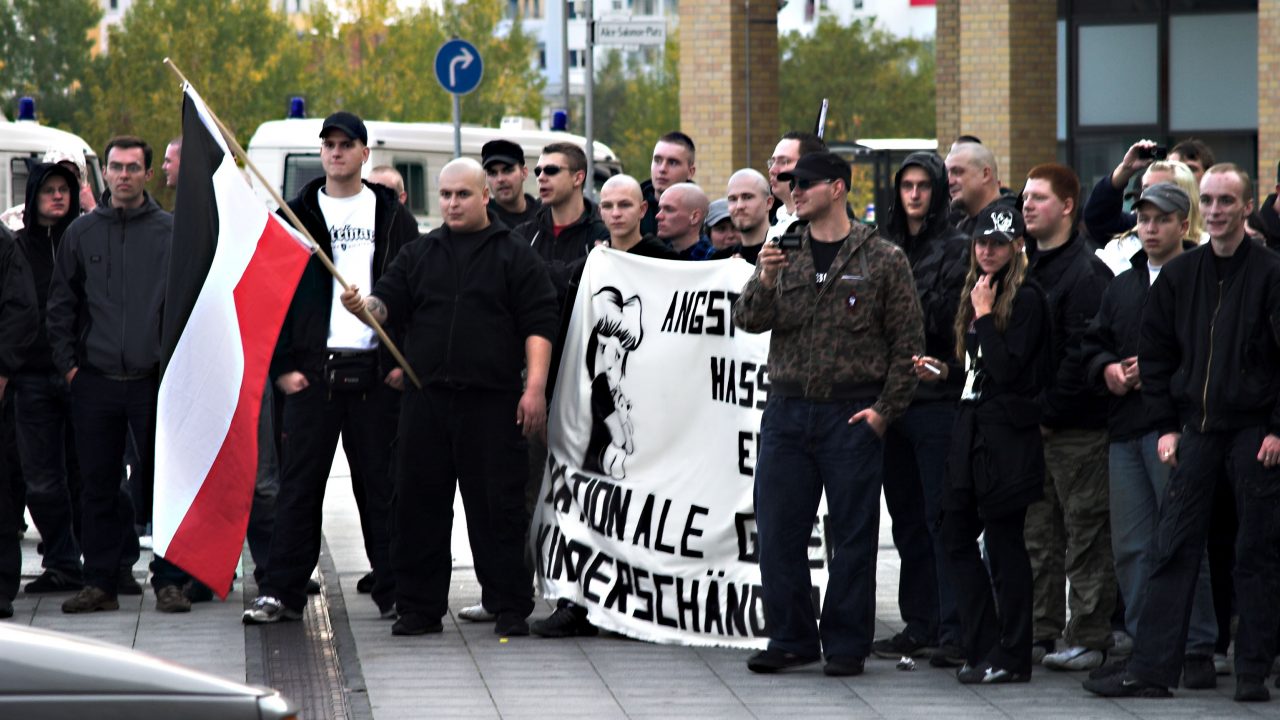About Right-wing Extremism in Germany
With the German reunification in 1990, liberal democracy was expected to bring freedoms of expression, choice and movement to all people across both parts of the country for the first time. However, at the same time, nationalist tendencies began to strengthen in significant portions of the population. Neo-Nazis from both East and West Germany joined forces, with racial tensions further fueling their numbers.
The early 1990s saw an alarming escalation in right-wing extremist violence.
One of the most shocking examples was the multi-day attacks on Vietnamese shopkeepers and contract workers in Hoyerswerda in 1991, followed by the devastating riots in Rostock-Lichtenhagen in 1992. These violent racist incidents were met with tacit approval from parts of the local population, highlighting a disturbing undercurrent of complicity.
For too long, politicians, the media, and law enforcement downplayed the severity of the issue, and failed to respond with the necessary urgency. The self-revelation of the far-right National Socialist Underground (NSU) terrorist group in 2011 further exposed the state’s failure to address and prevent the right-wing extremist threat. Over the course of more than 10 years, largely undetected, the NSU murdered at least nine people of migrant backgrounds, as well as a police officer.
Hate in Transition
Emerging from the shadows of the stereotypical skinheaded neo-Nazi thug, modern forms of right-wing extremism are increasingly visible in public life. Germany’s version of the “alt-right” is characterized by:
- Ethnopluralism – the belief that each ethnic group should live in its own homogeneous country to avoid “racial mixing”
- Antisemitic and anti-American conspiracy theories
- Populist fear-mongering about immigration, pluralism and modernization
Modern right-wing extremists draw on long-standing ideas of the inequality of peoples, on racism, sexism, and other forms of group-based hostility, that already exist in society. These far-right movements are becoming simultaneously more visible and more subtle: through populist media debates, the creation of “ethnic settlements” that blend ecological farming with nationalist land grabs, and publicity stunts like the “Identitarian Movement” intercepting refugees in the Mediterranean, they no longer fit the obvious image of ideologues from the Nazi era.
The true danger of these movements often goes unnoticed until they openly challenge state authority. For years, self-proclaimed “Reichsbürger” (Citizens of the Reich) have propagated their belief that Germany is not a sovereign state but remains under Allied occupation. This movement largely flew under the radar until a police officer was shot during a weapons raid on a Reichsbürger, bringing attention to their rapidly growing numbers and illegal weapon stockpiles.
As the number of asylum-seekers in Germany increased in 2013, right-wing extremists and populists seized the opportunity to inflame anti-refugee sentiment, particularly online. The “Patriotic Europeans Against the Islamization of the West” (Pegida) and its regional offshoots mobilized thousands of protesters across Germany. Hundreds of self-proclaimed “concerned citizen” groups, often presenting themselves as apolitical, stoked racist fear around the local housing of refugees. This led to a sharp rise in physical assaults on refugees and arson attacks on their accommodations.
Right-wing populists have united around Islamophobia and anti-refugee rhetoric, while simultaneously attacking elites and the media. Their strategy of provocation and calculated boundary-pushing is proving effective: these toxic narratives have gained them seats in the Bundestag, eroding Germany’s political culture. This right-wing populist alliance spans across Europe and even extends to the United States, where the alt-right has sought to exert influence within the White House. The enemies of democracy are joining forces, making it more urgent than ever for civil society to take action.
